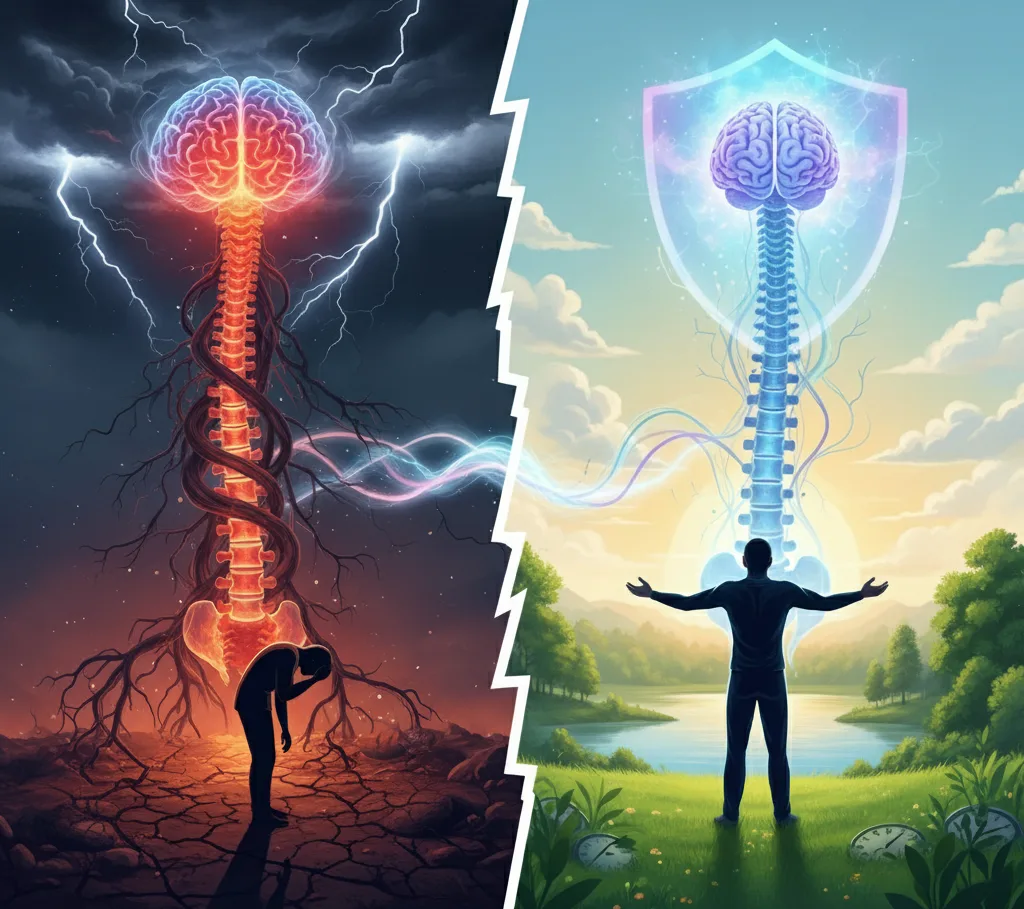Is Your Back Pain Causing Your Anxiety? The Powerful Link Between Spine Health and Your Mood

Is Your Back Pain Causing Your Anxiety? The Powerful Link Between Spine Health and Your Mood
We all know that chronic back or neck pain is a physical nightmare. It restricts your movement, steals your sleep, and makes every task feel impossible.
But what if we told you that lingering spine issues might also be the silent fuel for your stress, anxiety, and general emotional drain?
It might sound surprising, but the connection between your structural health (your spine) and your emotional state is profound. At the N K Aggarwal Joints and Spine Centre, led by Dr. N.K. Aggarwal, we treat the whole patient and understanding this spine-mind link is the first step toward true recovery.
Here’s why taking care of your spine is essential for mental peace.
1. The Nervous System Highway
Your spine isn’t just a stack of bones; it’s the protected housing for your central nervous system (CNS), the superhighway that transmits all signals between your body and brain. When a disc is herniated, a vertebra is misaligned, or joints are inflamed, this isn’t just pain—it’s irritation to the nerves.
This constant, low-level irritation doesn’t just register as physical discomfort; it floods your brain with signals of distress, keeping your entire system on high alert. Essentially, your nervous system is continuously signalling “threat,” which manifests in your mind as elevated stress and anxiety.
2. The Cortisol and Stress Loop
Chronic pain is one of the most powerful stressors the human body can endure. When you live with back pain every day, your body responds by pumping out stress hormones, primarily cortisol.
This is meant to be a short-term survival mechanism. However, when cortisol levels are chronically high, they interfere with sleep, disrupt mood regulation, and increase feelings of anxiety and irritability. The loop is vicious: Pain causes stress hormones, which lead to anxiety, which makes you tense up, which worsens the pain. Treating the source of the pain is the only way to break this physiological cycle.
3. How Posture Affects Your Confidence and Mood
Think about the physical appearance of depression or deep fatigue: hunched shoulders, a lowered head, and a slumping posture. This isn’t just a visual symptom; it’s a feedback mechanism. Studies show that people who maintain an upright, “powerful” posture report higher levels of self-esteem and lower levels of social anxiety.
Conversely, when spine issues force you into a guarded, slouched position, it restricts your breathing and limits the production of endorphins, making you feel physically and psychologically closed off. Treating neck and back issues allows you to physically stand tall, which literally changes the chemical signals your brain receives about your current emotional state.
4. The Hidden Toll of Sleep Deprivation
One of the most immediate effects of back or joint pain is the total destruction of quality sleep. You toss, you turn, and you wake up stiff, often leading to only a few hours of light, fragmented rest.
Lack of deep, restorative sleep is a direct trigger for heightened anxiety and depression. When you’re tired, your emotional resilience drops to zero. Everything feels harder, more overwhelming, and more urgent. Until the underlying spinal issue is managed, getting the rest you need to stabilize your mood will remain a challenge.
Treating the Spine, Calming the Mind
If you’ve been struggling with unexplained anxiety, irritability, or persistent stress alongside your physical pain, understand that they are likely connected. Addressing the structural problem in your spine is one of the most impactful ways to reset your entire nervous system and regain emotional balance.Whether through conservative therapies, targeted injections, or specialized surgical intervention, the goal at the N K Aggarwal Joints and Spine Centre is not just to fix the joint—it’s to restore your life and your peace of mind.
